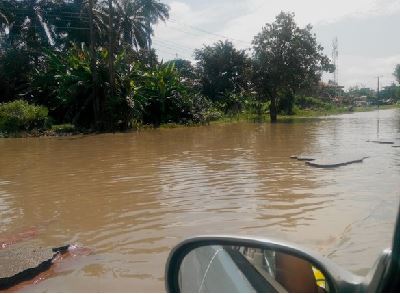The Nigeria Meteorological Agency (NiMet) has emphasised the need for proactive measures to ensure that all citizens, regardless of location, language, or socioeconomic status, have access to timely and accurate disaster warnings.
This call was made by the Director-General of NiMet, Prof. Charles Anosike, on Monday in Abuja during the opening of a three-day Expert Workshop on “Early Warning for All,” part of the National Disaster Risk Reduction (DRR) Strategic and Action Plan for 2023-2030.
Prof. Anosike, represented by the Director of Weather Forecasting Services, Prof. Vincent Weli, at the event organised by the National Emergency Management Agency (NEMA), highlighted the unpredictable nature of disasters, whether natural or man-made, and the severe impacts they have on communities and livelihoods.
“Disasters can strike without warning, leaving devastating consequences. Early warning systems are essential as they provide critical time for people to seek safety, evacuate, or take necessary precautions,” Anosike stated.
He stressed that early warnings are effective only if they reach all those at risk.
With Nigeria facing various hazards such as floods, landslides, droughts, and conflicts, the impact of these disasters can be catastrophic.
He called for a proactive and inclusive approach to disaster management, ensuring that every citizen receives timely and accurate warnings.
To achieve this, Anosike noted that Nigeria must invest in robust early warning systems that utilize technology and community networks and strengthen emergency response capabilities.
He emphasized the importance of public awareness campaigns, collaboration between government agencies, non-governmental organizations (NGOs), and local communities, and incorporating disaster risk reduction education in schools and communities.
He highlighted NiMet’s role in supporting early warning initiatives, including providing accurate and timely weather forecasts, issuing warnings, disseminating data, and training stakeholders on early warning systems and weather forecasting.
Other roles include climate monitoring and conducting research to enhance forecasting capabilities.
“We are committed to educating the public on weather-related hazards and promoting awareness of early warning systems,” he added.
“Collaboration with partners, NGOs, and other stakeholders is key to ensuring a coordinated approach.”
Anosike urged all stakeholders in disaster management to work together to achieve better results in disaster mitigation and prevention.
“By working together, we can build a culture of resilience and reduce the risk of disasters in Nigeria. Let us commit to protecting our people, our communities, and our nation,” he said.
Echoing this call, the Director-General of the Nigeria Hydrological Services Agency (NIHSA), Umar Mohammed, represented by Mrs. Fashe-Adam Fransisca, Director of the Engineering Department, emphasized the importance of disseminating workshop information to grassroots stakeholders.
He noted that the challenge in disaster management in Nigeria is not the lack of data or early warning but the failure of people to heed warnings.
“NIHSA is fulfilling its duty, and so are other organizations, but many people fail to act on warnings. We wait until disaster strikes, then react. We hope this program will help better sensitize people, especially at the community level,” he said.
Mohammed also stressed the importance of teaching people how to adapt to and build resilience against natural disasters that cannot be prevented.


